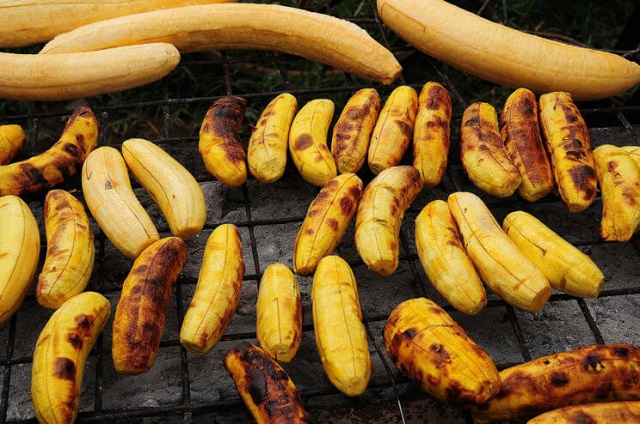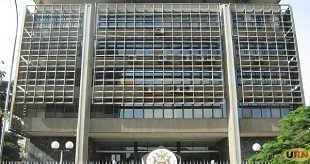
Kampala, Uganda | THE INDEPENDENT | Vendors of sweet plantains alias Gonja at Namawojjolo roadside market along Kampala-Jinja highway in Mukono district have started closing stalls due to lack of supply.
According to the vendors, they are unable to import sweet plantains from the Democratic Republic of Congo-DRC because of the border closure due to the corona pandemic.
Vendors in Najjembe and Lukaya markets in Buikwe and Lukaya districts respectively are equally affected.
Annet Namuyomba, one of the vendors at Namawojjolo roadside market is worried of how she will take care of her family now that she is out of business.
She also says the absence of sweet plantains affects all vendors including those selling roasted beef, chicken and juice.
Mary Kyolaba, another vendor notes that they sustain their businesses through loans, which they have failed to pay off.
Badru Mwesezi, the representative of sweet plantain dealers at Najjembe reveals that majority of the vendors have closed.
“We have remained with few vendors who had bought produce in plenty but once they also run out, this business will completely close,” Mwesezi said.
John Bosco Matovu, the Chairperson Lukaya roadside market says the situation isn’t any different at his market.
“The shortage of sweet plantains is already enough to force vendors to stay in their homes the only challenge is that from these little businesses they have been able get daily bread,” Matovu said.
******
URN
 The Independent Uganda: You get the Truth we Pay the Price
The Independent Uganda: You get the Truth we Pay the Price



I thought we were supporting local farmers by buying roadside things. Kumbe that gonja was of DRC. They cannot find locally grown gonja?
This is what the President was saying, that we can take advantage of borders being temporarily closed to boost our economy locally.
They should look for Ugandan gonja such that when public transport is back on the roads, they can make money from passengers and our local farmers also get money.